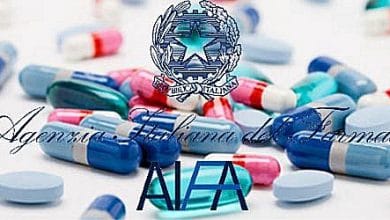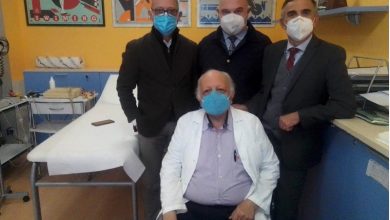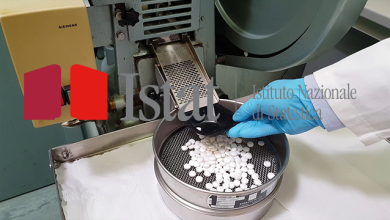
We take a well-known and proven model, such as the Chronic Care Model. It is used, very partially, for a single disease, with the sponsorship of a pharmaceutical company. And they call this innovation? And are the doctors who participate aware that they are an active part of the intrinsically conflicting and insidious relationship between healthcare professionals and the pharmaceutical industry?
October 28, 2015 | Comune.info
 The InNov@FIMMG project, promoted by the Italian Federation of General Practitioners (Fimng), was recently launched. The first phase will be developed in four Italian regions (Tuscany, Marche, Umbria and Puglia) and will involve one hundred general practitioners (mmg) corresponding to a sample of 150,000 citizens. The first General Medicine Units will then be set up, made up of doctors and specially trained personnel, equipped with first-level diagnostic equipment (spirometers, electrocardiographs, pressure holters, ultrasounds) and supported by a computerized data collection system.
The InNov@FIMMG project, promoted by the Italian Federation of General Practitioners (Fimng), was recently launched. The first phase will be developed in four Italian regions (Tuscany, Marche, Umbria and Puglia) and will involve one hundred general practitioners (mmg) corresponding to a sample of 150,000 citizens. The first General Medicine Units will then be set up, made up of doctors and specially trained personnel, equipped with first-level diagnostic equipment (spirometers, electrocardiographs, pressure holters, ultrasounds) and supported by a computerized data collection system.
Only marginally is the sponsorship of the pharmaceutical company Menarini mentioned which would allow, from September 2015, the launch of a pilot project on COPD (In-spir@FIMMG)[27]. The "unconditional contribution” of the pharmaceutical company, as can be seen from the available information, would allow for the training of doctors of general medicine FIMMG, the use of diagnostic technologies (spirometer) and the creation of a data collection system on COPD.
Despite the use of reassuring language, unfortunately it is necessary to ask ourselves what the conditions of the contribution are.
Why is a pharmaceutical company interested in sponsoring these projects? And are the doctors who participate aware that they are an active part of the intrinsically conflicting and insidious relationship between healthcare professionals and the pharmaceutical industry? Report which, not surprisingly, has been compared by the British Medical Journal to that of who dance with a hedgehog[28]: on the one hand there is in fact the doctor, called to protect health in a health system in which he performs a public function, and on the other there is a pharmaceutical company that applies dynamics aimed at commercial profit, with all the devices related to marketing actions.
AND it is essential that doctors become deeply aware of the intrinsic conflicts of this relationship, and that they reflect in detail on the implications of public-private collaborations. The relationship with the pharmaceutical industry cannot be eliminated, since part of the treatment is carried out through the prescription of drugs and the use of diagnostic tools, but a clear ethical positioning is fundamental, all the more so for the important public function with which GPs are invested.
it is essential that doctors become deeply aware of the intrinsic conflicts of this relationship, and that they reflect in detail on the implications of public-private collaborations. The relationship with the pharmaceutical industry cannot be eliminated, since part of the treatment is carried out through the prescription of drugs and the use of diagnostic tools, but a clear ethical positioning is fundamental, all the more so for the important public function with which GPs are invested.
In this bond, positioning oneself ethically means wanting to equip oneself with information and cultural tools to be able to manage the unconscious or subtle aspects of marketing and actively limit the meddling and intervention of industry in contexts where this relationship is harmful to the promotion and protection of health.
The InNov@FIMMG project has the potential to change the work of GPs in everyday care even after the experimentation is over; the lack of transparency regarding the type of agreement that Menarini has entered into with FIMMG and the type of contract with the individual GPs who will participate in the trial raises further ethical concerns and it does not allow for an in-depth evaluation of the validity of the project as a presumed agent of innovation in dealing with chronicity in the area.
u Can unconditional contribution really be such when it comes from an industry that has primary interests so different from those of healthcare professionals?
Can unconditional contribution really be such when it comes from an industry that has primary interests so different from those of healthcare professionals?
Independent Training vs Sponsored Training
Another question is related to sponsored training: it is vaguely mentioned that Menarini's contribution will also be used for the training of GPs on COPD.
Training in medicine (pre- and post-graduate) has the primary objective of teaching a methodology of thought applied to the clinic which should allow doctors to update, read, critically and independently evaluate scientific evidence in order to know how to place it in the social phenomena in which people's lives take place (especially in primary care). There is strong evidence on the need to oppose the assignment of medical training to the pharmaceutical industry and on the unconscious effects that arise from the commercial-training devices implemented by companies (the effects on prescribing behaviors deriving from interactions with pharmaceutical representatives, free gifts/gadgets, sponsored congresses, food and the atmosphere created)[29,30,31]. In particular, we report, among the most authoritative voices, the official document of the Association of American Medical Colleges which declares the dangerousness of the pharmaceutical industry's interference in the training of doctors: "for every aspect of medical training, and for academic training in particular, there is evidence of the corrosive effect that is produced on the three fundamental values of the medical profession: autonomy, objectivity and altruism […]. It is essential to protect integrity in teaching, learning, medical practice and limit the inappropriate or harmful influence of industry on medical education”[32]. The Institute of Medicine of the National Academies also[33] is of the same opinion and has published an extensive work that underlines how "the risk/benefit ratio of the financing of the pharmaceutical industries on medical training is for many reasons unbalanced on the risks"[34].
Data management and access
THE The third point concerns the management and access to the data that will be collected. What data will be collected first? Who will manage them and how? Will Menarini have access to it? Will Menarini be able to interrupt the trial if it deems it appropriate? And if negative aspects arise from the Innov@FIMMG project, will they be published and/or made public? This reflection arises from the fact that the international literature has shown how, unfortunately, planning agreements are increasingly frequent which give the sponsor control over the management and publication of data[35,36,37].
The third point concerns the management and access to the data that will be collected. What data will be collected first? Who will manage them and how? Will Menarini have access to it? Will Menarini be able to interrupt the trial if it deems it appropriate? And if negative aspects arise from the Innov@FIMMG project, will they be published and/or made public? This reflection arises from the fact that the international literature has shown how, unfortunately, planning agreements are increasingly frequent which give the sponsor control over the management and publication of data[35,36,37].
Market strategies that seriously harm health
The influence on research and training is actually only one of the strategies implemented by the pharmaceutical industry and is transversal to other "corporations". These strategies have also recently been denounced by the director of the World Health Organization Margaret Chan who asserts:
“the greatest challenge for the promotion and management of chronic diseases lies in opposing the economic interests of the world's most powerful companies, Tobacco, Alcohol, Food, Beverage, […] who fear any form of regulation and use the same protective strategies. To protect themselves, they employ front lobby groups, make promises of self-regulation, threaten lawsuits, or initiate industry-sponsored research that confuses scientific evidence and instills doubt among the public […] and tactics include gifts, scholarships, contributions to worthy causes that portray these industries as respectable subjects in the eyes of politicians and citizens. [...] We must oppose these dynamics with tenacity. The power of the market it readily translates into political power. Few governments have prioritized public health over market interests.”[38,39]
In conclusion, market dynamics inappropriately infiltrate the practices of production, dissemination and implementation of medical knowledge; unfortunately, if these critical issues are not made explicit and one does not position oneself ethically, one contributes to fueling a type of culture that is harmful to public health.
Conclusions
The article set out to analyze the InNova@FIMMG project focusing mainly on two aspects: the management of chronic conditions in the primary care setting and the issue of conflict of interest with pharmaceutical companies.
Firstly, the choice of the InNov@FIMMG project to consider the introduction of diagnostic and information technology as a priority for the management of chronic conditions is in fact very far from primary care models and strategies that the literature has shown to be effective and opens the debate on the need for a reorganization of primary care that is really capable of responding to the health needs of the population.
Finally, the contribution of the pharmaceutical company Menarini to the InNov@FIMMG project places the conflict of interest between pharmaceutical companies and healthcare professionals at the center of the debate, casting doubt on the transparency of training interventions and data management and raising ethical questions that limit the validity of the project as a presumed agent of innovation in dealing with chronicity in the area.
Alice Cicognani, Viviana Forte and Cecilia Francini, General Medicine group of the Italian Global Health Teaching Network (RIISG)
Related news: Fimmg, here is the School of Research in General Medicine supported by Msd





